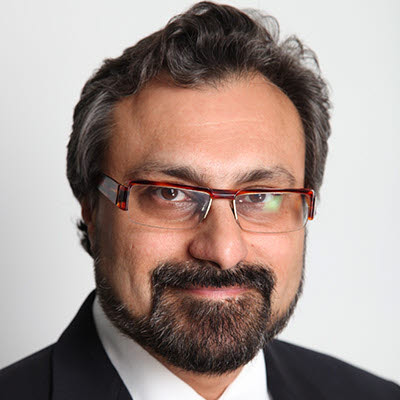Reflections on Europe's industrial outlook
Europe’s industry is navigating shifting trade dynamics, sustainability demands, and geopolitical uncertainty. While some sectors struggle with competitiveness, others show resilience and growth potential. Three experts discuss the challenges ahead and the opportunities shaping Europe’s future.
"Helping our customers navigate a difficult landscape while achieving their sustainability goals"
Johanna Andréasson
COMPANY: Nynas
TITLE: Group Strategy Manager
BACKGROUND: During her close to 18 years with Nynas, Johanna has worked in a variety of roles within the bitumen and naphthenics businesses. She holds a MSc in Chemical Engineering with Engineering Physics and Industrial Management.
"Uncertainty seem to be the only certainty in today’s world. Beyond the ongoing net-zero transition, shifting trade dynamics and evolving international cooperation are reshaping Europe’s economy and security outlook. At the same time, Germany – the continent’s economic engine – faces structural challenges after consecutive years of contraction. These uncertain times are impacting many industries, including Nynas’ customers.
Europe’s vital automotive industry is under significant pressure. Accounting for 7% of the continent’s GDP, the sector is struggling with software-defined vehicles, Chinese competition, new powertrains, and shifting consumer demands. A potential delay in the EU’s 2035 net-zero vehicle rule might offer short-term financial relief for European automakers, but risks undermining their long-term global competitiveness as they fall behind in the EV technology race.
In contrast, the electrical industry remains strong, with transformer manufacturers experiencing full order books for many years to come. This reflects the important ongoing electrification as part of the transition to a more sustainable society.
In the coming years, Europe is likely to place greater emphasis on self-reliance. The recent Draghi report proposes investments of €750-800 billion annually to counter tough competition from the US and China. But increased inward focus does not come without risks, and Europe must navigate this shift carefully, balancing competitiveness, sustainability and security.
At Nynas, we embrace the challenge, helping our customers navigate a difficult landscape while achieving their sustainability goals. As the only European producer of naphthenic specialty oils, we ensure supply security and sustainability through local production and shorter transport routes.”
"The outlook for the EU engineering sector should remain good"
Professor ManMohan Sodhi
COMPANY: Bayes Business School
TITLE: Professor of Operations and Supply Chain Management
BACKGROUND: PhD in Management Science from the UCLA Anderson School of Management at the University of California, Los Angeles; lifetime Fellow of the Production and Operations Management Society
"In the near term, the problems for the European economy are all too apparent, with tariffs, high energy prices, and tepid GDP growth rates. The automotive industry is well behind China in the electric vehicle sector, and the EU’s moves to protect the industry have now been devastated by the Trump tariffs.
The European engineering sector is generally strong, albeit with challenges. Companies like ABB Ltd, Siemens, and ThyssenKrupp AG will likely grow above the decidedly low GDP growth in the coming years. As other countries, particularly in the Global South, industrialise further, the outlook for the EU engineering sector should remain good. Still, with the Russian gas pipelines being blown up, followed by three- to four-fold hikes in energy prices for imported natural gas from the US, the challenges are very much there.
In the medium and long term, the EU economy faces the same demographic challenges as many other countries, including China – an aging population and declining fertility rates. Absorbing more migrants, legal or not, is also a challenge.
The EU could also improve relations with the Global South, especially as these countries are the only markets they have left. Rather than blindly following the US, European countries could show the Global South that they stand for themselves and the rule of law domestically and internationally, and follow the lead of France in this direction. That way, they can pitch themselves as better trade partners than China. But it would be a tough sell."
"Need for greater – not reduced – investment in infrastructure"
Sue Arundale
COMPANY: The European Federation of Engineering Consultancy Associations (EFCA)
TITLE: Director General
BACKGROUND: Director of Technical and Environmental Affairs, European Construction Industry Federation; President of the European Council for Construction Research, Development and Innovation
"Last year, companies in the sector I represent reported higher profitability and generally strong market conditions. The European market performed well overall, although it began to slow during the second half of the year.
Looking ahead, we are waiting to see how public investment in some infrastructure will be hit, as European countries react to rapidly changing circumstances. Budgets are under pressure from the need to increase defence spending and there is uncertainty around the effects of US tariffs – both in terms of general price levels and the specific impact on the construction industry.
At the same time, governments across the EU are prioritising energy independence and the resilience of critical infrastructure. This shift is being driven by concerns around climate change, cyber threats, and increasing geopolitical tensions. As a result, sectors such as construction, engineering, and logistics may see increased opportunities.
Recent policy developments support this view. The EU’s Preparedness Strategy and an upcoming EFCA report on rethinking resilience both emphasise the need for greater – not reduced – investment in infrastructure.
To meet current and future challenges, Europe will require a more skilled workforce, investment in quantum infrastructure, and progress on energy independence. Key initiatives already on the European Commission’s Work Programme for 2025 include the Water Resilience Initiative and the Clean Industrial Strategy."







